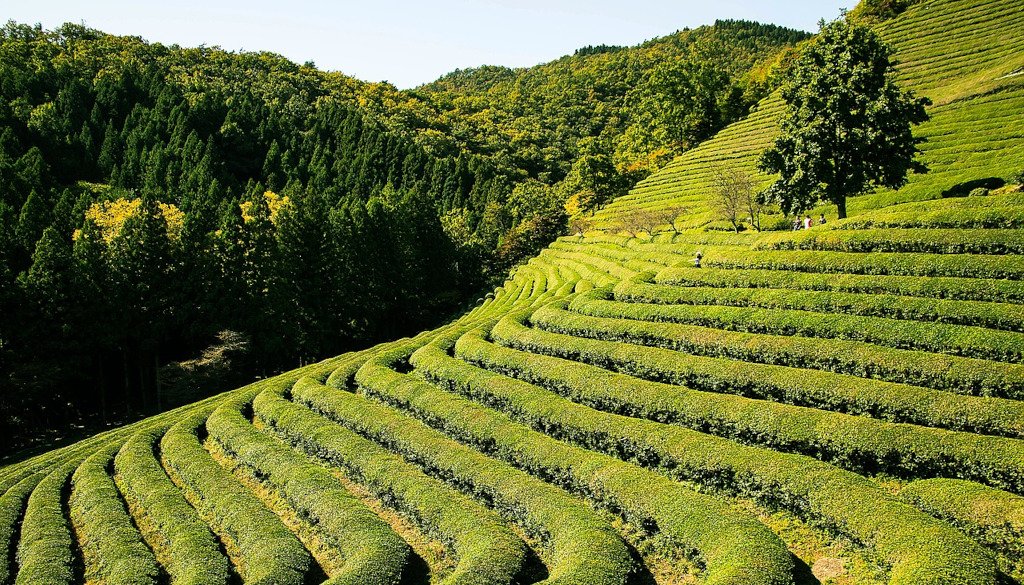In a major stride toward climate resilience, the Tea Research Association (TRA) and the Indian Tea Board (ITB), in association with several agricultural universities have introduced a new climate-smart tea seed stock designed to mitigate the impacts of rising temperatures and erratic weather patterns on tea production. The innovation comes at a critical time for India’s tea industry, which contributes over $2 billion to the economy annually and supports the livelihoods of nearly 3.5 million tea workers, predominantly in states like Assam, West Bengal, and Tamil Nadu.
The Growing Threat of Climate Change to India’s Tea Industry
India is the world’s second-largest tea producer, accounting for approximately 23% of global production, with an output of over 1.37 billion kilograms in fiscal year 2023. However, climate change poses a significant threat to the sector. Rising temperatures, unpredictable rainfall, and increased pest infestations have already led to declining yields and lower quality in major tea-growing regions. Data shows that tea production in 2024 is already down by 80 million kilograms due to extreme heat and climate factors.
A study by the Tea Research Association (TRA) reveals that key tea-producing areas like Assam have experienced a 1.4°C rise in temperatures over the last century, with projections indicating a further increase of up to 3°C by 2050. Coupled with irregular monsoon patterns, tea plantations have seen reduced yields by 10-15% in the last decade alone. This has translated into substantial financial losses for tea farmers, many of whom are smallholders operating on less than 10 hectares of land.
Introducing Climate-Smart Tea Seed Stock
To address this mounting crisis, agricultural researchers have developed climate-smart tea seed stock that are engineered to withstand higher temperatures and fluctuating weather conditions. The new seed stock ‘TSS 2’, will help the industry prepare itself to counter the negative effects of climate change. The new variety, designed specifically for India’s diverse tea-growing regions, promises to boost resilience against climate extremes, helping farmers maintain productivity despite environmental stresses.

The climate-smart tea boasts several critical features:
- Heat Tolerance: Engineered to withstand temperatures exceeding 35°C, these help tea bushes continue thriving during heat waves, which have become more frequent in India’s tea plantations.
- Drought Resistance: With improved water retention capabilities, the tea plants require less irrigation and are better equipped to survive prolonged dry spells, reducing the impact of erratic rainfall patterns.
- Pest and Disease Resistance: The new variety has been bred to resist common pests like the tea mosquito bug and fungal diseases like blister blight, which have proliferated due to warming temperatures.
The Economics of Climate-Smart Tea
With tea contributing significantly to India’s agricultural exports, the introduction of this climate-smart variety is expected to have widespread economic benefits. India’s total tea exports during 2022-23 in quantity were 228.40 million kg and worth US$ 793.78 million. However, the increasing cost of mitigating climate-related damages and productivity losses has put pressure on the industry’s profitability.
The climate-smart tea seed stock could improve yields by up to 15% in heat-affected regions, stabilizing production levels that have been fluctuating due to unpredictable weather. By protecting crops from environmental stresses, the new variety is poised to save farmers up to 30% in costs related to irrigation, pesticide use, and crop failures.
A Boon for Smallholder Farmers
India’s tea industry relies heavily on smallholder farmers, who contribute nearly 50% of the country’s total tea production. These farmers, operating on small parcels of land, are especially vulnerable to climate change. The introduction of climate-smart tea is expected to benefit over 1 million smallholders, providing them with a sustainable solution to safeguard their livelihoods.
Read More: USAID-Supported Tea Processing Facility in Kumaon to Benefit Up to 6,000 Farmers
Preliminary trials of climate-smart tea in Assam have shown a potential yield increase of up to 15% in heat-affected areas. Additionally, farmers using these new varieties have reported a 30% reduction in irrigation costs and a significant decrease in pesticide usage. The increased profitability will help stabilize income for smallholders, many of whom have faced shrinking margins due to rising input costs and climate-induced crop failures.
Sustainability and the Future of Tea Production
In addition to its economic benefits, the climate-smart tea aligns with broader sustainability goals. Tea production in India is water-intensive, with an estimated 3,000-4,000 liters of water needed to produce just 1 kilogram of tea. The drought-resistant properties of the climate-smart tea will help plantations reduce water usage, promoting more sustainable farming practices.
Furthermore, the new variety’s pest-resistant traits will likely reduce the need for chemical pesticides, which have long-term environmental impacts on soil health and biodiversity. By decreasing dependency on such inputs, the climate-smart tea could help the Indian tea industry meet international sustainability standards, making Indian tea more competitive in global markets.
A Global Model for Climate-Resilient Agriculture
India’s success with climate-smart tea may serve as a model for other major tea-producing countries facing similar climate challenges. Countries like Kenya and Sri Lanka, which also contribute significantly to global tea supply, have already expressed interest in adopting climate-smart technologies to combat their own production woes caused by climate change.
The global tea market, valued at nearly $50 billion, is highly vulnerable to climate disruptions, and India’s innovation could provide a scalable solution for securing future tea production. With demand for tea expected to rise in the coming years, innovations like climate-smart tea are essential for ensuring the long-term sustainability of this critical agricultural sector.
A Step Towards Climate-Resilient Agriculture
The launch of the climate-smart tea marks an important milestone in the global effort to build more resilient agricultural systems. As climate change continues to disrupt traditional farming practices, innovations like the climate-smart tea offer hope for the future of India’s tea industry.
By mitigating the effects of rising temperatures and erratic weather patterns, this new variety promises to protect the livelihoods of millions of tea workers, secure India’s place as a global leader in tea production, and pave the way for sustainable agricultural practices in a warming world.


